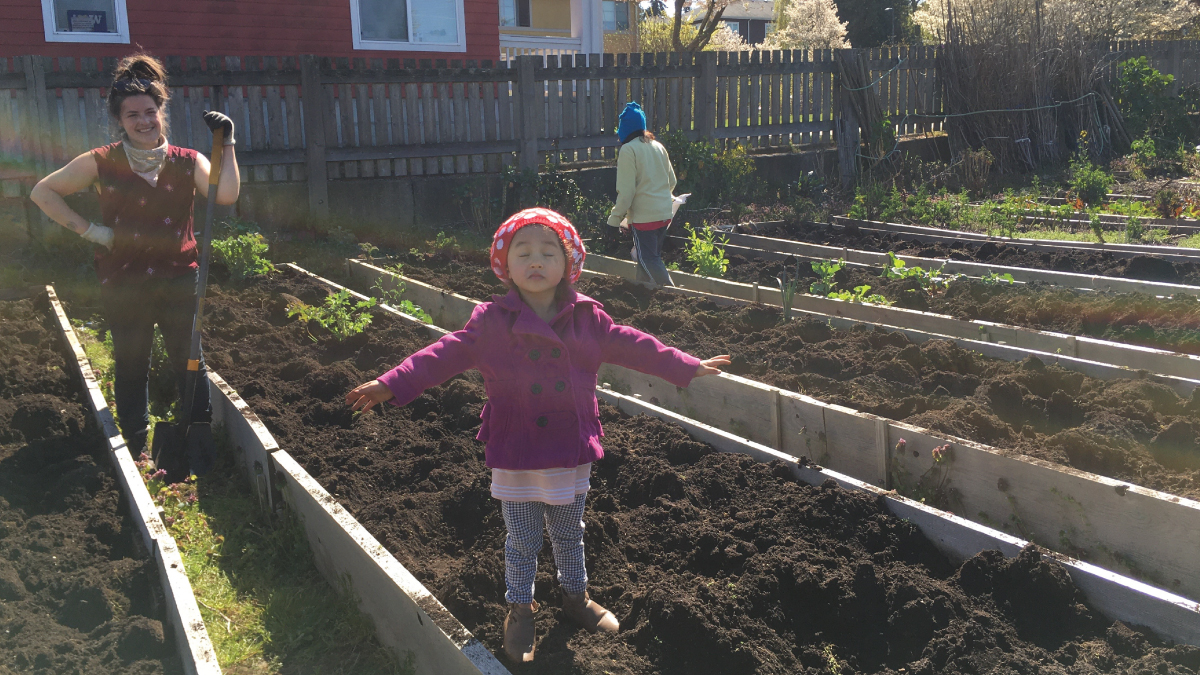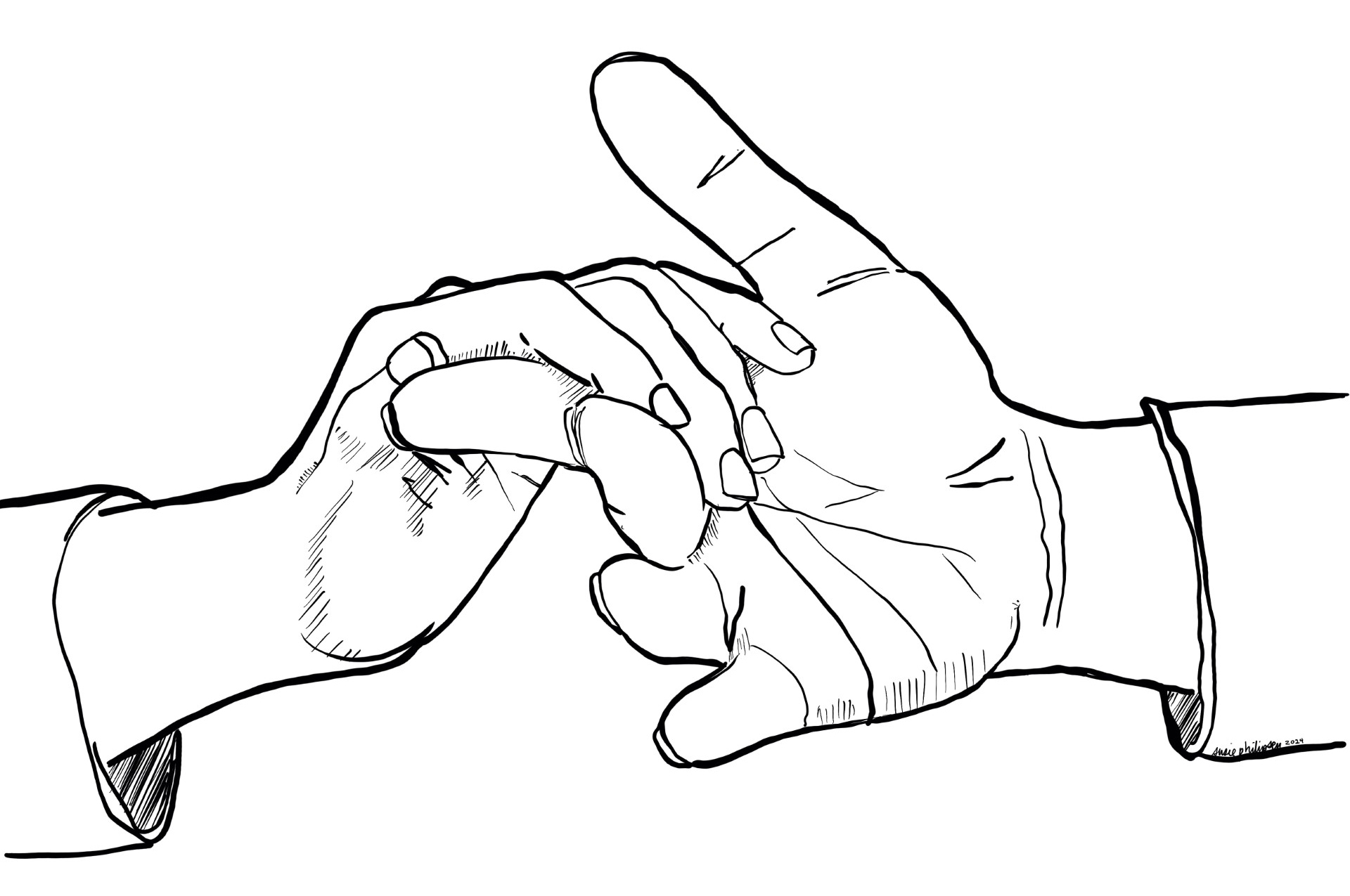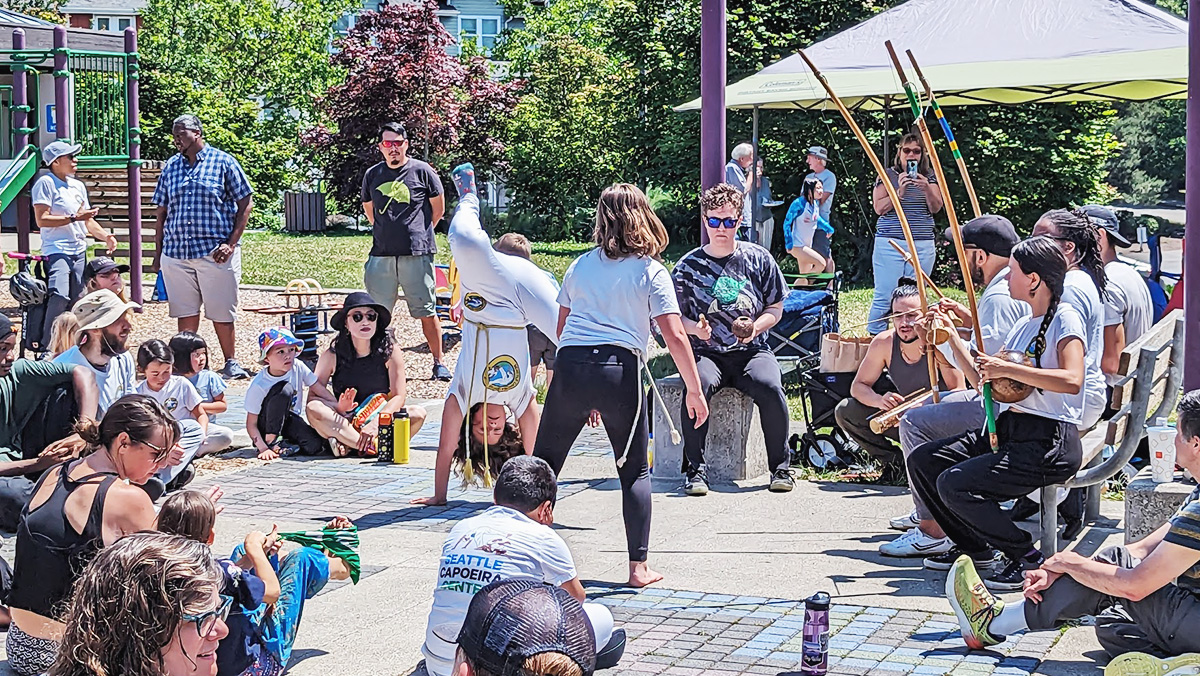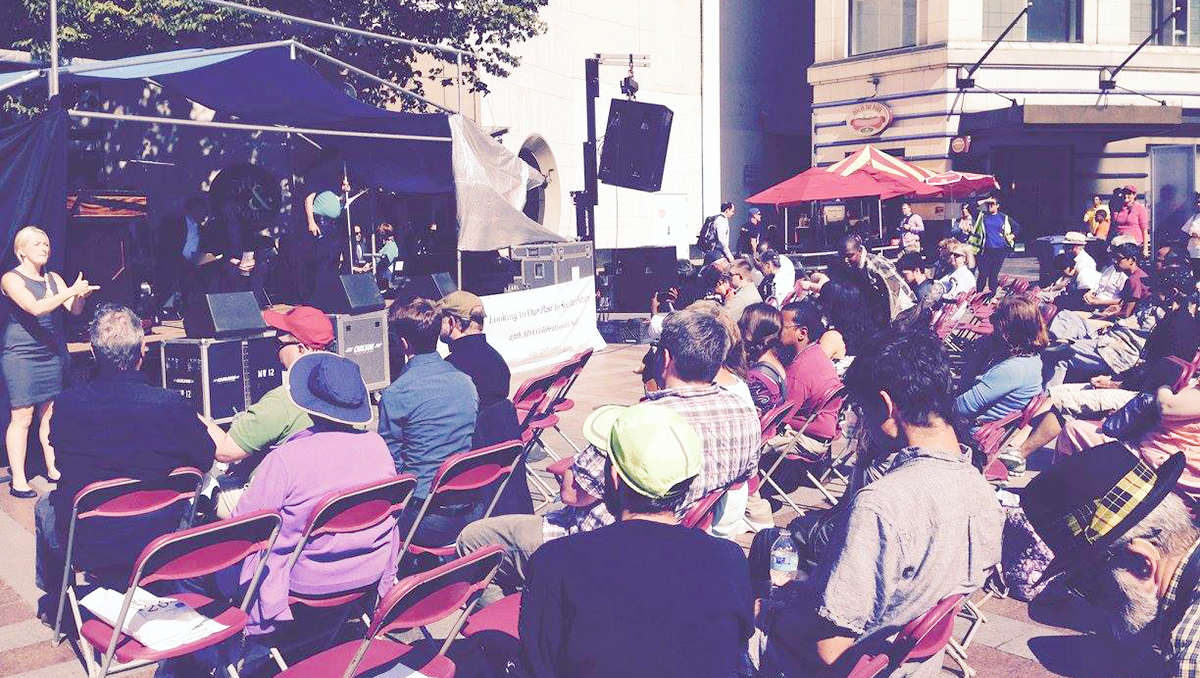 High Point P-Patch gardener, Oun Yeav, her granddaughter, and Courtney Peetz, volunteer from West Crest P-Patch, worked with P-Patch Staff to plant potatoes and onions in April.
High Point P-Patch gardener, Oun Yeav, her granddaughter, and Courtney Peetz, volunteer from West Crest P-Patch, worked with P-Patch Staff to plant potatoes and onions in April. Seattle’s P-Patch Gardens have served as community hubs for more than four decades. They have brought people together to grow food, explore cultures and customs, share ideas, and build supportive communities across the City. These communities have been invaluable in helping our City deal with the impacts of COVID-19. From the organized giving efforts of our Giving Gardens and Market Gardens to our support of grassroots movements focused on food justice for marginalized communities, the P-Patch program and its gardeners are helping residents get through this current crisis while also laying the foundation for a more sustainable future.
The P-Patch program has been working to address inequities in food access for years. The community gardens not only provide space for people to grow their own food but also grow food to share via our Giving Gardens program. In 2019 alone, P-Patch gardeners provided over 38,000 pounds of fresh organic produce to feeding programs and food banks across the city. That’s nearly $100,000 worth of healthy foods being delivered straight to local organizations like Rainier Valley Food Bank, Recovery Café, Greenwood Senior Center, Byrd Barr Food Bank, and so many others.
“Our Food Bank has been greatly impacted by the amazing work from the gardens in this community. We can hand our clients more fresh, nutritious, and thoughtful produce because of you! Not only is this improving the physical health of our community, it boosts the morale of our staff and deeply inspires our volunteers.”
– Lily Piecora, Byrd Barr Place Food Bank Coordinator
And, in 2020, as our communities reel from the impacts of COVID-19, P-Patch gardeners are stepping up even more to ensure that their neighbors have access to healthy food.
Our Market Garden Farm Stands, a regular summer fixture in both the High Point and NewHolly neighborhoods, have also pivoted toward supporting those in need during this pandemic. The market gardens, located on Seattle Housing Authority (SHA) property, are spaces where farmers work communally to grow and, typically, sell organic produce through farm stands. Those farmers, many of whom are elders, did not feel safe working in the gardens during the current health crisis. So, some of those stewarded plots were assigned to SHA residents on the garden interest list and the remaining were converted to growing for giving. P-Patch gardeners and community volunteers will be harvesting produce from these gardens throughout the summer and delivering to local food banks and feeding programs.
We recognize that these efforts are a drop in the bucket when it comes to truly addressing food insecurities. That is why the P-Patch program continues to prioritize partnering with and investing in Black, Indigenous and People of Color (BIPOC) community organizations and grassroots movements focused on food justice. For example, our staff consistently work with YES Farm, Seattle Community Farm, Black Farmers Collective and, most recently began working with John Wesley Sargent and the new Seattle BIPOC Organic Food Bank.
P-Patch staff member Nate Moxley worked to secure land for Seattle BIPOC Organic Food Bank at Seattle Community Farm. Since then, he has helped lead groups of volunteers in clearing the land and preparing it for crops. Nate has also been providing John assistance with overall site development, volunteer management, and resource allocation of tools, soil, inputs, and equipment.
Nate’s work is just one example of the efforts being led by every member of our P-Patch staff to secure land and build relationships and opportunities for more inclusive participation in community gardening. These investments in collective efforts are key to building a culture of gardening that both promotes the growing of healthy food and better prepares us to take care of ourselves and one another in the future.
Thank you to everyone who has joined us in these efforts! ❤️️❤️️❤️️


